QuestionI purchased a pure bread boxer about 5 years ago. Due to a change in living arrangements, I had to give him to another family. Well, I have recently been reunited with my dog. I is currently a 60lb. boxer named Fletcher. He is a model dog. He listens well and does great with my two kids. However, when we leave the house for any amount of time Fletcher turns into the Tasmanian Devil and destroys everything. The first time we left him in the house, he chewed up the carpet, ate the mini-blinds, and urinated and defecated in the middle of the room. We have since resorted to a metal dog kennel which is kept in the garage. He has since then chewed 4 of the metal bars off of the cage, bent the door, knocked off the latch, and essentially demolished the metal cage. We are currently trying the plastic pet taxi type of kennel. The first day he was in it, he managed to knock the door open and have his run of the garage. As always, Fletcher experiences extreme diarrhea and frequent urination (in the kennels and all over the garage). He has the ability to hold himself of quite a while but everyday we return home, we are greeted by an awful mess. He has also resorted to tearing up stuff. He has annihilated sports equipment (footballs, weight bench) shovels, etc. What can we do. We really want to keep the dog because he is extremely well behaved when we are home, but we cannot continue to contend with the destruction and mess. Any suggestions will be greatly appreciated.
AnswerDear Bill,
Thanks for the question.
How was Fletcher when you had him before? How long was he with the foster family? Did the foster family report any similar behaviors?
It could be that Fletcher has separation anxiety. Does it occur when you leave for 15 minutes or only when you leave for hours? That would be a good piece of the puzzle to have. Is he nervous or anxious before you leave? Is Fletcher ever anxious in any other situations? thunderstorms, loud noises, et cetera?
Separation anxiety has four major signals and they occur only in the absence of the people -
inside elimination, destructive behaviors directed at entry and exit points, salivation, and excessive vocalization. The behaviors occur within 5-25 minutes of the people's departures.
Fletcher has two symptoms (destructive behaviors directed at entry / exit points and inside elimination). To learn if he has separation anxiety, determine exactly when the behaviors occur. To do this, depart as usual, but return in 5 minutes. If he has not destroyed anything or eliminated, repeat the sequence but leave for 10 minutes, then 15 minutes, then 20 minutes, et cetera. If he does not start his misbehaviors until 2 hours after you leave, separation anxiety is probably not the root problem.
In any event, the cure could be more exercise and more structure. If he has separation anxiety, the treatment is much more complex.
There are many components to a successful behavior modification plan. Treatment for separation anxiety (or any other abnormal behavior problem) is much more than exercises to reduce the behavior. It's more about the owner-pet relationship and how best to meet your troubled dog's physical, emotional, and social needs.
Check out the book, I'll be Home Soon (Paperback)
by Patricia B McConnell . She offer detailed instructions for the exercises to help Fletcher learn to relax.
If you are unsuccessful, you'll need a complete behavior modification program. Visit http:///www.apdt.com and search for a certified trainer in your area.
Happy Training!
AT

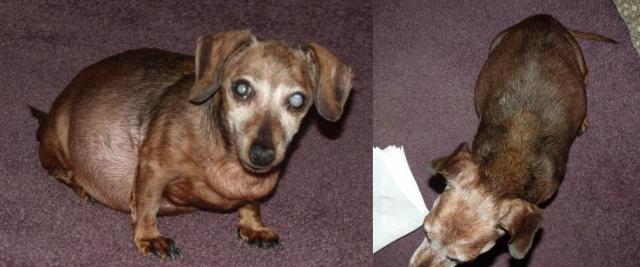 Older dog with distended stomach.
Question
Belle
Hi, my 14 year old miniature dachshund,
Older dog with distended stomach.
Question
Belle
Hi, my 14 year old miniature dachshund,
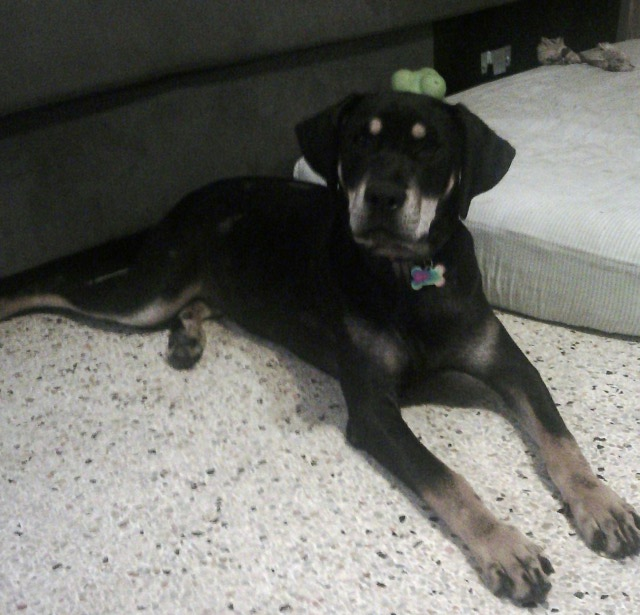 weird hair loss on my curr mix
Question
cuddles
ive seen other questions about
weird hair loss on my curr mix
Question
cuddles
ive seen other questions about
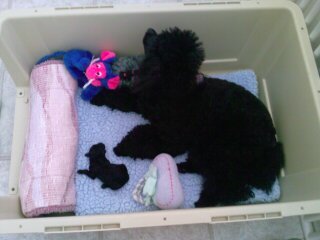 Diarrhea in Nursing Bitches
QuestionAtrix & Pup
QUESTION: My Champion Mi
Diarrhea in Nursing Bitches
QuestionAtrix & Pup
QUESTION: My Champion Mi
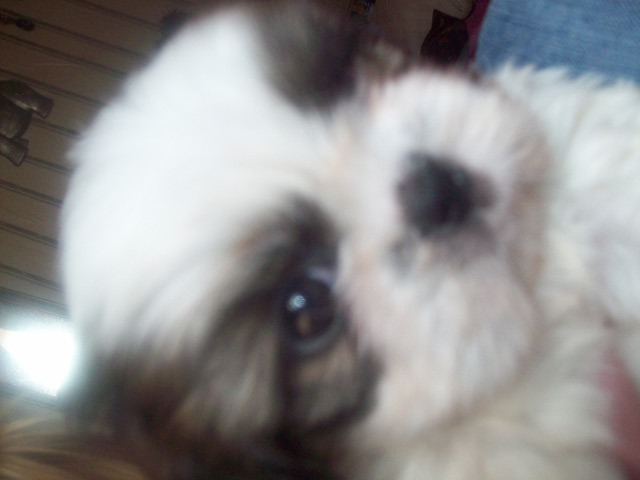 8wk old pup biting
Question
pebbles
hi i wonder if u can help me my
8wk old pup biting
Question
pebbles
hi i wonder if u can help me my
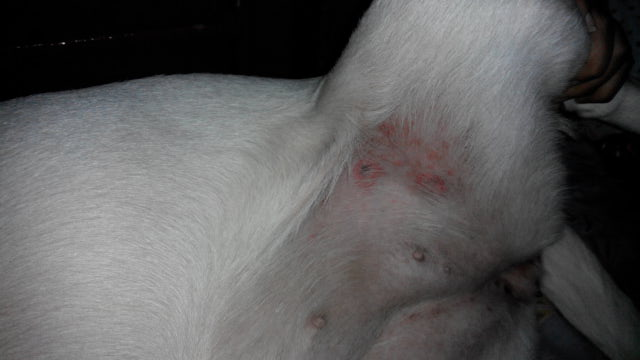 Live worms came out in my dogs poop and he has some rashes?
Question
The Rashes
She is 15 months old and is
Live worms came out in my dogs poop and he has some rashes?
Question
The Rashes
She is 15 months old and is